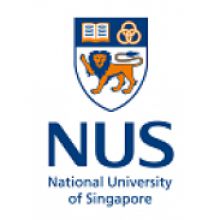“It was a surprise,” recalled Sir?Konstantin Novoselov of?the rapturous reception to?the Science paper published almost 20?years ago on?the discovery of?“atomically thin carbon films” that would quickly win him a?Nobel prize.
“We were completely outside the carbon research world, so we?didn’t really know how many people had been working on?this for decades. Many scientists were sure that graphene was a?material that could?not exist, so?naturally this got a?lot of?attention,” he?reflected on? that would eventually see him and his University of Manchester colleague Andre Geim jointly awarded the Nobel Prize in?Physics in?2010. A?little over a?year later, both men would be?knighted.
Such rapid and extraordinary acclaim was, however, entirely consistent with the excitement about the wonder material that many hoped would spark a?new British industrial revolution. Graphene – super-thin, highly conductive and cheap to?make – was predicted to?take over from silicon as the material of choice for microchips, while many felt its strength, durability and flexibility would lend itself to any number of products.
Keen to ensure that the UK led the world, George Osborne, who was then chancellor, stumped up ?50?million (later upped to ?60?million) in 2011 for a graphene research centre in Manchester to help take the novel material from the “British laboratory to the British factory floor”. In?2013, the European Commission went further, unveiling a decade-long €1?billion (?870?million) Graphene Flagship project to commercialise the technology.
成人VR视频
“At a certain moment, it seemed everything was going to be made from graphene,” said Sir Konstantin, who has since 2019 been based at the National University of Singapore, where he is a professor in the Centre for Advanced 2D?Materials.
But graphene – although it is now used in everything from tennis rackets and helicopter blades to lubricants – has not been the game changer that many had hoped. British graphene companies have struggled financially in recent years, while a meta-market analysis estimated that global graphene sales stood at $380?million (?290?million) in 2022, a solid but unspectacular showing.
成人VR视频
For his part, Sir Konstantin is not perturbed that graphene has not yet lived up to the early hype.
“We’re on a more realistic track – we can see some things are possible with graphene, and some things are?not. That’s a better technological approach than saying it can be used for everything,” he said, speaking to?成人VR视频 at the annual Lindau Nobel Laureate Meeting in southern Germany.
Graphene is more prevalent than many might think, insisted the 49-year-old Russia-born scientist, who was the youngest Nobel winner for almost 50 years when he won aged?36. “If you own a Chinese mobile phone, you’re probably using graphene every day as it’s incorporated into battery technology. And the number of applications is growing every day,” he said.
And graphene’s accidental discovery by Sir Andre and his PhD student Sir Konstantin – using sticky tape to rip off graphite layers – underlines why support for basic science remains so crucial, insisted Sir Konstantin.
成人VR视频
“With relatively little money, you can have a lot of impact,” he said. “The investment that came after graphene benefited a lot of science – particularly the materials science community in Europe. It also allowed us to bring a fantastic cohort of scientists to Manchester and create a critical mass of people likely to lead materials science research over the next few decades.”
These scientists – along with spin-outs working on potential applications – could yet fulfil graphene's potential, he added. “About 5?per cent of the world’s energy goes into computing, and with AI’s arrival, that will be 10?per cent soon. We need solutions, and graphene and other materials will help to provide solutions,” he said.
Although Sir Konstantin retains an affiliation with Manchester, he said he feared that some of the vibrancy of the UK research scene had been lost in recent years – dented by Brexit and, more recently, by restrictions on British laboratories’ work with Chinese and Russian researchers.
“There is no secret of how to do good research – it is done by the best people, and we know the supply of good talent is quite uniform across the world. You win if you attract the best talent to your institution. After Brexit, it made it quite difficult to bring those people to the UK – it was?not seen as attractive as it once was,” said Sir Konstantin.
成人VR视频
“More generally, I?see science is less connected than it was – scientists are getting disconnected from the global science community, and that doesn’t help anyone,” continued Sir Konstantin, adding that “security concerns are mentioned, but 99?per cent of science has nothing to do with the military”.
“Now some Israeli scientists are no longer getting invitations to conferences, as is now the case with Chinese and Russians. Scientists shouldn’t be used like this for political games,” he added.
成人VR视频
Countries such as Singapore – where he is now based – are likely to be ones to benefit, he believed. “We’ve benefited from having Ukrainian and Russian scientists working together, and a lot of fantastic Chinese PhD students and postdocs – it’s very international. That’s something that I?enjoy about Singapore, but it’s much harder to achieve in a British lab,” he said.
POSTSCRIPT:
Print headline: Graphene’s future is?still bright but ‘we’re more realistic’
Register to continue
Why register?
- Registration is free and only takes a moment
- Once registered, you can read 3 articles a month
- Sign up for our newsletter
Subscribe
Or subscribe for unlimited access to:
- Unlimited access to news, views, insights & reviews
- Digital editions
- Digital access to 罢贬贰’蝉 university and college rankings analysis
Already registered or a current subscriber?












